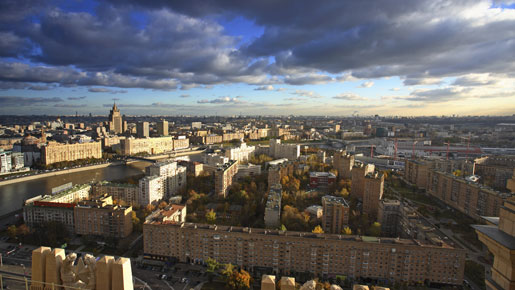
Moscow is the world’s most expensive city for expatriates for the second consecutive year, according to the latest Cost of Living Survey from Mercer Human Resource Consulting. London is in second position, climbing three places since last year. Seoul moves down one place in the ranking to take third place, followed by Tokyo in fourth. Asuncion in Paraguay is the least expensive city for the fifth year running.
With New York as the base city scoring 100 points, Moscow scores 134.4 and is over two-and-a-half times costlier than Asuncion, which has an index of 50. Even so, the gap between the world’s most and least expensive cities appears to be narrowing.
Mercer’s survey covers 143 cities across six continents and measures the comparative cost of over 200 items in each location, including housing, transport, food, clothing, household goods and entertainment. It is the world’s most comprehensive cost of living survey and is used to help multinational companies and governments determine compensation allowances for their expatriate employees.
“There have been some significant changes in the rankings since last year. These are primarily due to exchange rate fluctuations – in particular, the weakening of the US Dollar and strengthening of the Euro,” said Rebecca Powers, a principal and senior consultant at Mercer.
She added: “As companies continue to send employees on expatriate assignments, they must closely monitor changes in cost of living to ensure their expatriate compensation packages are fair and competitive.”
Moscow is the most expensive city in Europe and in the rest of the world, for the second year running, with a score of 134.4 (compared with 123.9 in 2006). “The appreciation of the Rouble against the US Dollar, combined with ever-increasing accommodation charges, has driven up costs for expatriates in Moscow,” said Yvonne Traber, research manager and senior associate at Mercer.
London has climbed three positions to second place in the ranking (score 126.3). “Steep property rental costs, together with the strengthening of the British Pound compared to the US Dollar, have contributed to the city’s high ranking,” commented Ms Yvonne Traber.
Other costly European cities include Copenhagen in 6th place (110.2), Geneva in 7th (109.8) and Zurich in 9th (107.6). Oslo remains in 10th place with a score of 105.8 while Milan climbs two places to position 11 (104.4). Sofia in Bulgaria is Europe’s least expensive city in 108th place with a score of 72.5.
The strengthening of the Euro has resulted in a number of European cities moving significantly up the ranking. For example, Stockholm has moved up from 36th position to reach 23rd place (score 93.1) while Amsterdam has climbed from 41st position to 25th (92.2). Cities in Spain, Greece, Germany and the UK also rank notably higher.
Ms Yvonne Traber commented: “The relative strength of the Euro and other European currencies, including the Swiss Franc and the Swedish, Danish and Norwegian Krone, has pushed up the living costs faced by expatriates in many European countries.”
Tel Aviv is the costliest city in the Middle East. The Israeli city ranks in 17th place and scores 97.7. Dubai and Abu Dhabi in the United Arab Emirates have moved down in the ranking this year. The main reason for this drop is that the UAE Dirham is pegged to the US Dollar. The majority of African cities covered by the survey come in the bottom half of the ranking.

